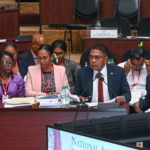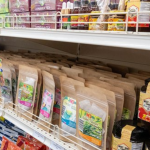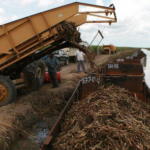The government is exploring several ways to provide support to rice farmers along the Essequibo Coast, Region Two to return their lands to cultivation.
This was announced by Minister of Agriculture, Zulfikar Mustapha during a recent engagement with several farmers there.
“The weather has played a very critical role in the last rice crop, so much so that a number of lands were not cultivated because of the inclement weather. We are looking to see how we can work with those farmers in the new crop to get back those lands under cultivation,” Minister Mustapha said.
The agriculture minister acknowledged the challenges faced by the farmers and stressed his ministry’s commitment to working with them to identify new crop opportunities.
The ministry is also pushing for the expansion of traditional crops and exploration of new opportunities, while also developing the livestock sector.
Minister Mustapha said these efforts are aimed at supporting various farmers and ensuring their livelihoods are protected.
The government’s plans demonstrate a commitment to creating sustainable growth in the food sector, while also recognising the challenges faced by farmers in an increasingly unpredictable climate.
By working closely with farmers and providing support, the government hopes to create a vibrant and resilient agriculture sector that can thrive in the years ahead.
Meanwhile, following the passage of budget 2023, the government has highlighted several projects earmarked for the Essequibo coast, with a particular focus on the food sector.
With the National Drainage and Irrigation Authority (NDIA) looking to invest some $16 billion into drainage and irrigation nationwide this year, the administration plans to use a portion of the funds to effectively support the drainage systems in Region Two.
Importantly, the dredging of the Pomeroon river mouth (cutter head) will continue this year to ease the flooding in the Pomeroon area.
Already, the government has acquired a pontoon with two excavators that are stationed permanently to assist farmers in the Pomeroon.
Minister Mustapha emphasised that investments this year will bring the much-needed transformation to Guyana’s food industry.
It will create jobs and stimulate economic growth, as well as improve food security and self-sufficiency.
The minister remains adamant that Guyana can tap into the potential, capture more international markets and bring in important foreign exchange for its people.






